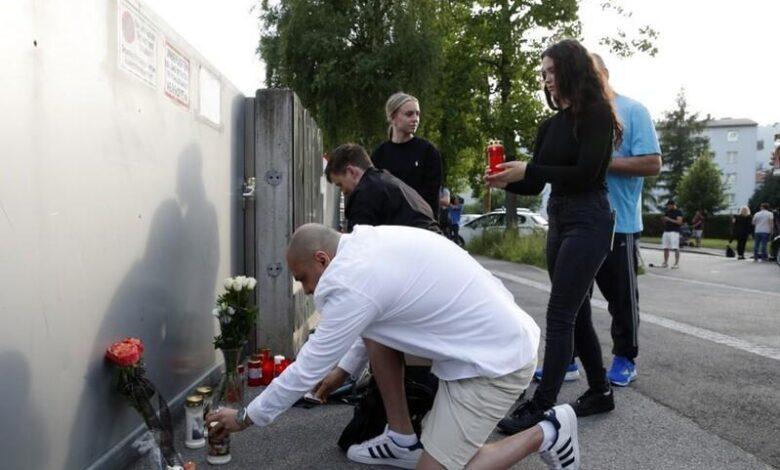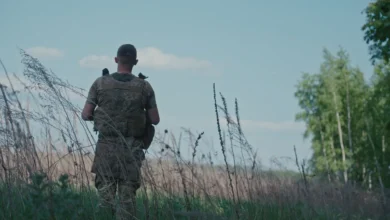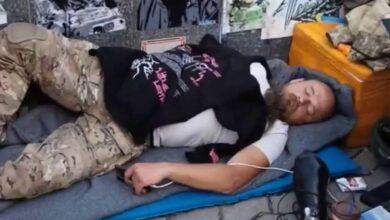Can students be protected: European media on school shootings and ways to prevent tragedies

The problem of security in schools in Europe is becoming more and more alarming. The events that happened last week simultaneously in Austria and France forced the European press to once again return to a difficult question: whether it is possible to guarantee the safety of students and teachers in educational institutions, and what real steps states can take to reduce the number of such tragedies. School is a place that, by definition, should remain a space of learning, development and security. However, in practice, this space increasingly becomes a place of mortal danger.
On Tuesday in Graz, Austria, a former student at a local high school, a 21-year-old man, went on a shooting spree before committing suicide. The total number of people killed during the shooting reached 11 people. According to journalists, among the wounded, nine are in serious condition, one more person is in extremely serious, critical condition. On the same day, in the French city of Nogent-sur-Marne, a 14-year-old teenager, passing through the examination of personal belongings at the entrance to the school, fatally stabbed an employee of the educational institution.
These tragic episodes caused a wide response in the European media, which commented on the situation, discussed the factors that lead to such attacks, and analyzed what systematic steps should be taken to strengthen security in schools. Discussions are not only about control measures and technical protection, but also about social, psychological and educational aspects that create the preconditions for such incidents. The European press is increasingly emphasizing that the increase in violence in schools is not a random isolated tragedy, but a symptom of more complex and deep problems affecting modern societies.
Kleine Zeitung – Austria. The Viennese Kleine Zeitung notes the deplorable state of mental health in society:
“This is a farewell to the illusion, according to which the school is not a reflection of society, but some fenced safe place where children can learn about life and the surrounding world in a trusting and safe atmosphere. Now we will have to discuss measures such as document verification, the use of metal detectors and locked school office doors. Otherwise, it will be impossible to fulfill the promise of protection given to parents and children. Society hurts, and this disease is no longer stops at the door of the school.”
La Stampa – Italy. In her article for Turin’s La Stampa, the writer Nicoletta Verna reflects on the subject of mobbing:
“This phenomenon has been known for a long time, but it is still not in the focus of public attention: it is a closed cycle – victim-criminal. Most often, criminals become those who themselves were victims of mobbing.
… A study conducted in Australia in 2023 found that about one-quarter of victims of mobbing later display aggressive behavior. It is not about “revenge”, it is about following a certain pattern. It is the belief that you will be accepted only if you do unto others as they have done unto you. Mobbing provokes a constant cycle of violence.”
Frankfurter Allgemeine Zeitung – Germany. The Frankfurter Allgemeine Zeitung criticizes both the increase in the number of those who own weapons and the methods of the yellow press:
“Our lives do not become safer because of the availability of firearms. In Austria, the number of those who have a license to carry weapons has increased significantly in recent years – from 200,000 to 270,000 in ten years. …Another aspect is the outrageous voyeurism that literally flooded the Internet immediately after the terrible crime at the Graz school.
Footage of police officers, evacuation of children from school, and even pictures allegedly showing bags of corpses began to circulate on various platforms. The media that got hold of these pictures and stuck with the headlines about “horror scenes” deserve contempt. Including because such publications can provoke imitators.”
Liberation – France. The Parisian Libération reflects as follows:
“The presence of security at a school at the time of a crime [in France] does not negate the need to consider introducing additional security measures to prevent such tragedies in the future. The proliferation of cold weapons is, without a doubt, a problem that needs to be tackled.
However, the death of an assistant at the Françoise Dolto college in Nozhan also showed that the topic of violence in the school context is much more complex and cannot be solved with the help of ready-made templates and templates in the field of security. The answer lies, rather, in a combination of pedagogical measures and security measures.”
Večernji List – Croatia. The strictness of the legislation on the acquisition and storage of weapons is not able to prevent such attacks – the Zagreb newspaper Večernji list believes:
“Mass murders on the ground of insanity are a kind of suicide: either the criminal ends up killing himself, or he is killed by the police, or he spends the rest of his life in crime. And this fact distinguishes such crimes from others, and therefore traditional preventive measures – such as increased control over the sale, possession and carrying of weapons or increased punishment for such crimes – will not stop the criminals. These criminals are not victims. But in order to to prevent such tragedies in the future, it is necessary to treat the underlying pathology that plunges criminals into despair and hopelessness.”
Le Quotidien – Luxembourg. Luxembourg’s Le Quotidien does not rule out that more and more stringent measures will have to be taken against violence in the adolescent and youth environment:
“While Austria is just beginning to investigate the unprecedented bloody crime committed in Graz, the French government has decided to waste no time and ban the sale of knives. The ban will also apply to Internet platforms. The French president has already announced that the country will ban the use of social networks by children under the age of 15 at the national level, if this is not done at the level of the European Union. This is what it has come to! Do we have to now? resort to more and more severe measures?”





